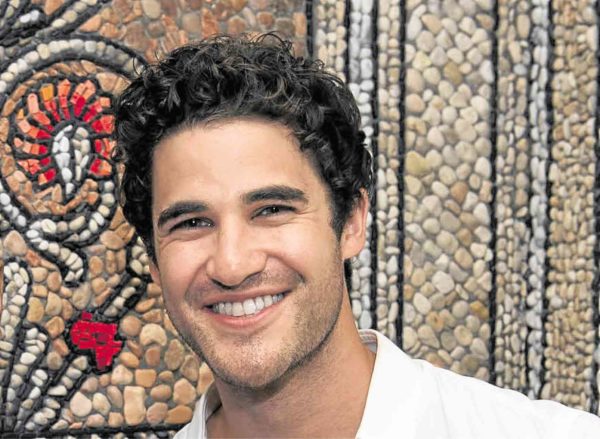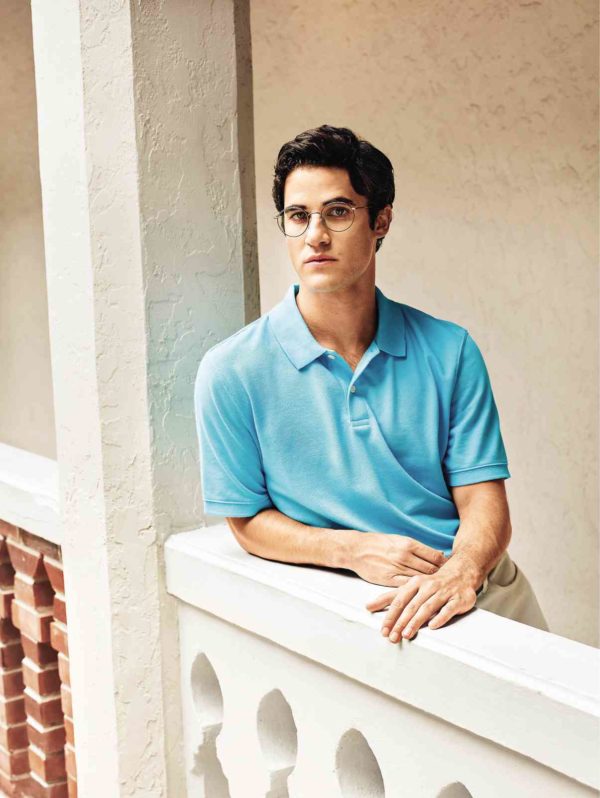Darren Criss talks about his most challenging role to date—playing Andrew Cunanan (Part 2)

Darren Criss —Ruben V. Nepales
(Conclusion)
I feel so strange,” admitted Darren Criss about being inside the Gianni Versace mansion in Miami one morning in May.
He plays Andrew Cunanan, who shot the designer twice in the head just outside this palatial house in July 1997, in FX’s “The Assassination of Gianni Versace: American Crime Story.”
“I was telling someone about how weird it was to be in this room,” the Fil-Am singer-actor shared about filming the assassination scene a few days earlier. “I was dressed as Andrew Cunanan, in the outfit that he murdered Versace in, and I was inside. I was walking around and I was taking pictures. I took a picture of the pool, and I saw myself. I was like, oh my God, I’ve got to delete this photo. It’s horrible, how irreverent, because Andrew never made it inside.”
In this part two of our column on Darren, we continue our talk about his biggest and most challenging role to date.

Darren Criss in “The Assassination of Gianni Versace: American Crime Story”
Excerpts:
What did you learn about Cunanan that informed your performance? The thing that we want to show in this is that we have two brilliant minds—we have Versace, the creator, and the destroyer (Cunanan). A lot of people who knew Andrew in his younger life described him as a promising, brilliant and charming young man. You go, what happened? It doesn’t follow the same blueprint of that of many serial killers, the Dahmers and the Mansons of the world. They’re off the rails from the get-go.
Whereas Andrew, it was heartbreaking for a lot of people who knew him because we show some of his friends in the series. Andrew was the godfather of the children of a friend from high school who was mortified to hear that this had happened. Because he was this caring friend and godfather.
So, he was not just an abomination. Yeah. That isn’t only on my shoulders, but in the order that we tell the story, without giving away too much. The structure of the show goes in such a way that we get to see Andrew at his worst and his absolute best. Then, it’s up to you to juxtapose those against each other.
How do you tell a story where the moral compass is clearly fixed? We can all agree this is a horrible thing. Versace was murdered on the steps of his house. We’re in this house. The first day I came in here, I got emotional thinking about it. Versace is here, the man is still alive in this house, everywhere. Coming in, seeing this and being a part of it, you go, wow, this man had everything that the man who killed him couldn’t have and wanted so badly.
I get very sad when I think of somebody like Andrew. We’ve all had these dreams of doing something great. That’s something we can relate to. It’s that sense of wanting something so bad and just being misdirected on how to get it.
Following up on that, Asian immigrant families, including Filipinos, are known to be model immigrants. What do you think about him or his family that contributed to his downfall? I don’t have any credentials in psychology and child development but, to me, after diving into what his background is, it seems a pretty textbook case, as far as what happened later in his life.
As a young man, Cunanan came from a very poor family and in one of the poorest neighborhoods in San Diego. His mother was mentally unstable, was very difficult to deal with. I don’t know what she had, but she self-medicated—a very tough situation.
His father, on the other hand, was a crook. He was embezzling people out of thousands of dollars. It was a loveless marriage, but they adored and spoiled this little boy. They gave him their master bedroom as he grew up. He was raised with this sense of entitlement from a very early age. That’s very dangerous as you get out in the world.
Narcissism involves people who think they’re pretty, but it’s more than that. It’s a psychological belief that if you believe something about yourself, it is true.
In that sense, Andrew believed that if he could say something about himself, then that’s true. And if he deserves something, he didn’t have to work for it. So, the decisions he made before the murders were unintentionally implanted by his parents. His father was caught. He sold the house and had to eventually flee to the Philippines.
This was where Andrew switched gears. He went to see his father [in the Philippines]. At this point in his life, Andrew has told a lot of lies about himself. He sometimes would totally discount his Filipino heritage. He would say he was Jewish, or that his father’s an Israeli pilot.
He went to the Philippines believing in this façade that his father was this rich pineapple plantation owner. He saw this man living in relative squalor. I think when he saw his father being everything he wasn’t, and against everything that he ever wanted, that was a point where most of us would learn from that and go, OK, you know what? I can change from this. I don’t want to be like this. I want to work hard for things.
Instead, he came back to the United States. For the rest of his life, he would make up stories. He’d blow up his own image of himself that would lead him to these grandiose acts of murder. Thinking that he’s above the law and above [the laws of] morality, because he doesn’t have to deal with the things that are real in his life.
What insights did you learn about Cunanan’s homophobia? What’s fascinating to me? This is a wonderful extension of where we all are. Not once in my entire time that I’ve been involved with this has anybody ever brought up the fact that he was gay.
I think mainly because it was eclipsed by the fact that he was a serial killer. That seems to be at the forefront of facts that people stick to. But, he was gay. I don’t think there was a homophobic bent to his series of murders. I think his homosexuality did lend him to certain scenes that he got to be a part of.
The people he dealt with and ultimately ended up murdering were people he had met through different underworlds of the gay scene in San Diego and Minneapolis. He had self-hatred. I think there were other feelings of ineptitude and being not good enough that really drove him. I don’t know how much of that had to do with him being gay. But that is a big part of our story.
It was the largest failed manhunt in FBI history. That seems like a big f***ing deal. A lot of people didn’t know about it. You have to scratch your head and you go, “Wait, so this guy killed how many people before Versace? How was he not caught?” He was on America’s most wanted list. Then, you start realizing, there’s a lot of fear and anxiety in law enforcement. And this is right after the worst part of the AIDS crisis in the mid-’90s.
You have a lot of this other stuff that’s happening that does lend itself to how this guy got away with it. That is important to mention. One thing I’ll say about “American Crime Story” that I’m truly proud to be a part of is the fact that, to me, “OJ,” the series, wasn’t just about OJ.
So, for our story yes, it’s about the horrible murder of an icon. And it’s about the journey and the downfall of the person who did it. But it’s also about everything that’s happening around—and how that echoes what we fear and deal with now.
E-mail rvnepales_5585@yahoo.com. Follow him at https://twitter.com/nepalesruben.